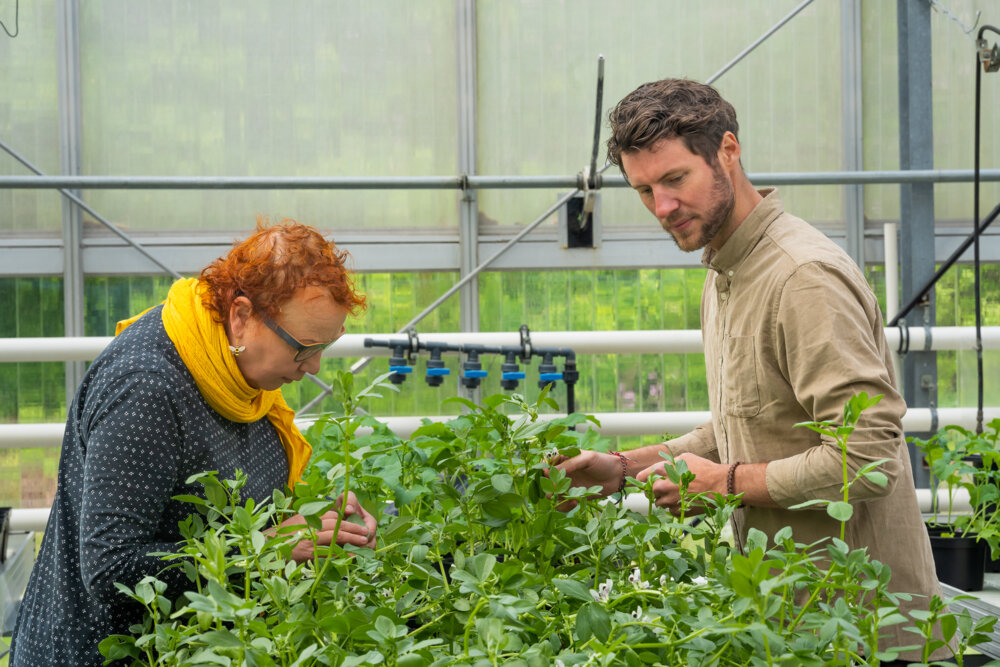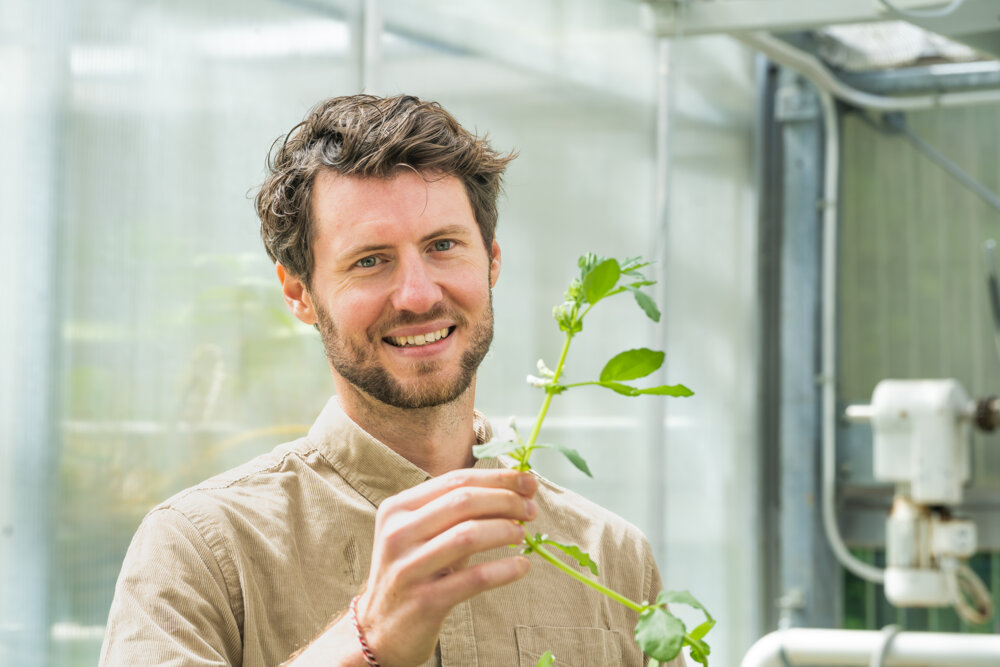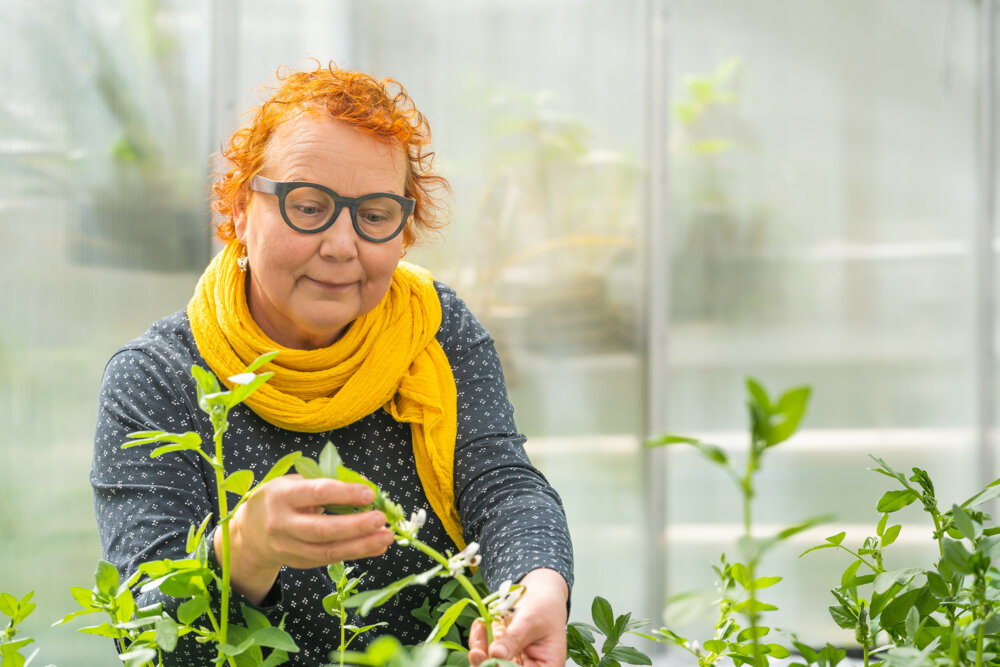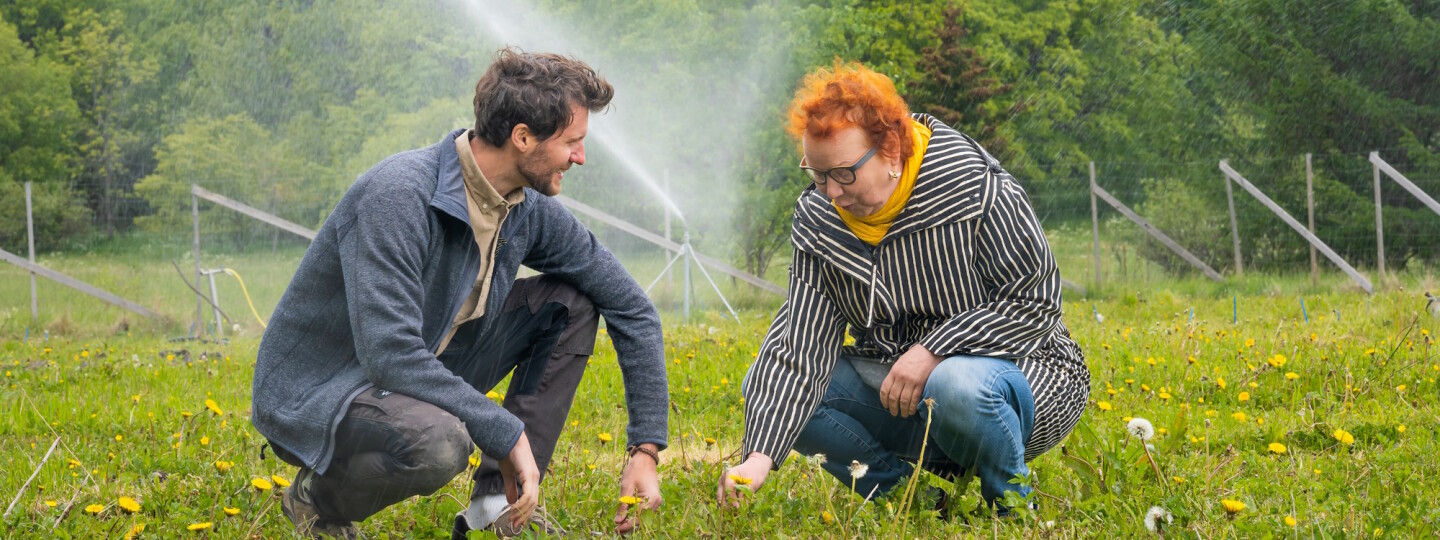Glyphosate, a widely-used chemical compound in herbicides and its wide-ranging impacts on ecosystems and pollinators will be the research focus at the University of Turku. In their proposals, the researchers highlight the importance of comprehensively understanding the problem and stress the significance of collaboration between researchers, farmers and decision-makers to address the issue effectively. The research has received significant funding from the Research Council of Finland and Sakari Alhopuro Foundation.
Glyphosate-based herbicides (GBH) are widely used in agriculture, private gardens, forestry, and urban environments. They are efficient, low in costs, and commonly perceived as safe, which explains their popularity. However, recent research demonstrates the potential negative impacts of wide-spread glyphosate use on ecosystem functioning and even evolutionary processes.
Docent, Senior Research Fellow Benjamin Fuchs from the Biodiversity Unit and Docent, Researcher Marjo Helander from the Department of Biology of the University of Turku examine direct and indirect impacts of glyphosate on ecosystems. With the start of his Research Council of Finland research fellowship coming September, Dr Fuchs and his team will investigate the key role of GBH products and their residues in soil for plant-insect as well as plant-microbe interactions, and insect biodiversity loss. An additional funding from the Sakari Alhopuro Foundation will be dedicated in particular to the investigation of the effects of GBH products on pollinators.

On their research Marjo Helander and Benjamin Fuchs examine on direct and indirect impacts of glyphosate on ecosystems.
Glyphosate disrupts vital shikimate pathway
Glyphosate-based herbicides were previously believed to be safe to use and have little impact on non-target plants or animals due to their specific mode of action. However, recent research has shown that wide-spread usage can have far-reaching impacts on ecosystems.
Glyphosate binds to the synthase enzyme EPSP, altering its structure and disrupting a vital part of the shikimate pathway.
“If the EPSP enzyme is completely blocked, the plant dies, because the enzyme catalyses the biosynthesis of essential aromatic amino acids. In case of low glyphosate concentrations, the enzyme’s function may be only partially affected with repercussions on the subsequent pathway. Many important plant products, such as volatiles, hormones, and toxins, derive from the shikimate pathway and act as mediators in interactions between species. We recently demonstrated that plants, which grow in soil with a history of GBH use had altered phytohormone levels and reduced resistance against herbivores”, says Fuchs.
While glyphosate targets the shikimate pathway, which is not present in higher organisms, microbes may be highly impacted. In recent decades, the crucial role of microbes in countless biological and ecological functions has been established, but the understanding of the effects of GBH products on microbes are still limited.

Benjamin Fuchs focuses on studying the indirect effects of glyphosate. He examines for example the effects of glyphosate residue accumulation in soil on plants, fungi, and insects.
Weakening microbiome and species interactions, strengthening diversity loss
Fuchs focuses on studying the indirect effects of glyphosate, such as the effects of glyphosate residue accumulation in soil on plants, fungi, and insects, as well as the intricate interactions that occur between them.
”As plants decompose, glyphosate is released into the soil, subsequently affecting other plants and animals, and weakening the soil’s microbiome. While glyphosate typically degrades relatively quickly in healthy soil and moderate temperatures, inadequate soil microbiome or unfavourable temperatures can slow down the degradation process, leading to the accumulation of glyphosate and its degradation products. Additionally, the co-formulants present in GBH products can often be more harmful than glyphosate itself”, explains Fuchs.
Research evidence shows that glyphosate interferes with the biosynthesis of plant signalling molecules, which affects the interactions between plants, fungi and insects.
“What we are aiming to unravel is this disruption in plant signalling, and whether it interferes with the ability of pollinators to find suitable plants or predatory insects to find herbivore-infested plants”, stresses Fuchs and continues, “There is a lack of studies on herbicide effects on a holistic spatial and temporal level, and it is virtually unknown how pervasive pollution affects disadvantages to insects, which may ultimately lead to a decline in insect species and loss in ecosystem diversity.”

Marjo Helander found out that glyphosate affects the memory and colour recognition capabilities of bees.
Docent, Researcher Marjo Helander is focusing on the direct effects of glyphosate on pollinators. Her studies have revealed that glyphosate affects the memory and colour recognition capabilities of bees. “Our recently published study suggests that glyphosate and GBH may also affect the gut microbiota of pollinators, which could potentially explain the observed effects of glyphosate exposure on their cognitive capabilities”, says Helander.
Call for collaborative efforts to find solutions and alternatives
Rather than simply promoting the prohibition of glyphosate, Fuchs wishes to raise awareness about other methods for weed control that can minimize the use. One such alternative is the cultivation of plants that naturally compete with weeds but do not disturb the main crop, such as heritage grains or groundcover plants. To promote beneficial insect biodiversity, Fuchs also praises the initial to have flowering strips on fields, as it attracts a diverse range of insects, including both pollinators and species that control pests.
In addition to alternative methods, Fuchs emphasises the importance of government intervention in promoting farmers to adopt herbicide-free alternatives.
”Through collaborative efforts, we can find more sustainable practices that not only protect the environment but also ensure the health and diversity of ecosystems”, states Fuchs.
Text: Jennifer Stanger
Photos: Hanna Oksanen




